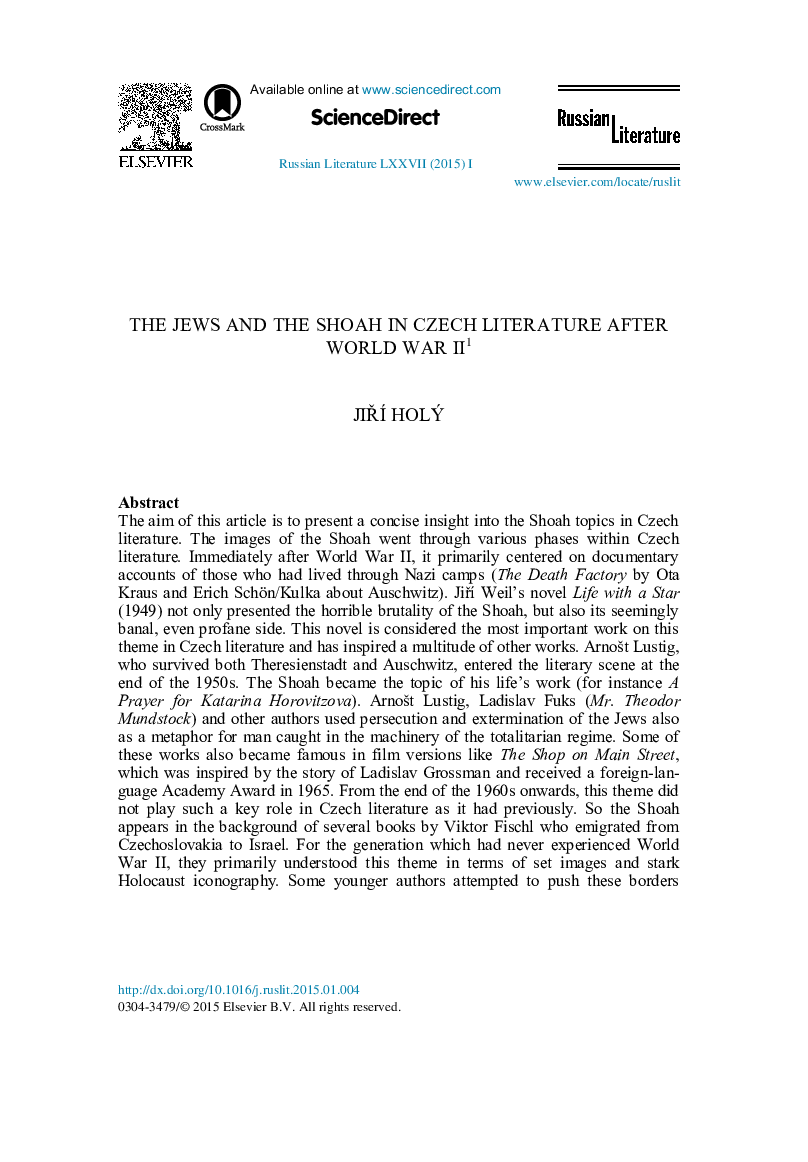| کد مقاله | کد نشریه | سال انتشار | مقاله انگلیسی | نسخه تمام متن |
|---|---|---|---|---|
| 1103810 | 953862 | 2015 | 19 صفحه PDF | دانلود رایگان |
The aim of this article is to present a concise insight into the Shoah topics in Czech literature. The images of the Shoah went through various phases within Czech literature. Immediately after World War II, it primarily centered on documentary accounts of those who had lived through Nazi camps (The Death Factory by Ota Kraus and Erich Schön/Kulka about Auschwitz). Jiří Weil's novel Life with a Star (1949) not only presented the horrible brutality of the Shoah, but also its seemingly banal, even profane side. This novel is considered the most important work on this theme in Czech literature and has inspired a multitude of other works. Arnošt Lustig, who survived both Theresienstadt and Auschwitz, entered the literary scene at the end of the 1950s. The Shoah became the topic of his life's work (for instance A Prayer for Katarina Horovitzova). Arnošt Lustig, Ladislav Fuks (Mr. Theodor Mundstock) and other authors used persecution and extermination of the Jews also as a metaphor for man caught in the machinery of the totalitarian regime. Some of these works also became famous in film versions like The Shop on Main Street, which was inspired by the story of Ladislav Grossman and received a foreign-language Academy Award in 1965. From the end of the 1960s onwards, this theme did not play such a key role in Czech literature as it had previously. So the Shoah appears in the background of several books by Viktor Fischl who emigrated from Czechoslovakia to Israel. For the generation which had never experienced World War II, they primarily understood this theme in terms of set images and stark Holocaust iconography. Some younger authors attempted to push these borders through representing the Shoah in an unusual way, fusing the grotesque, horror, vulgarity and banality (Arnošt Goldflam, Jáchym Topol).
Journal: Russian Literature - Volume 77, Issue 1, 1 January 2015, Pages 35-53
